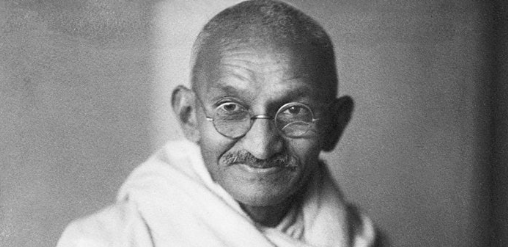Written by: Altamash Khan;
Mohandas Karamchand Gandhi, fondly known as Mahatma Gandhi, stands as an immortal figure in the annals of history, revered as the Father of the Nation in India. His life, philosophy, and tireless pursuit of justice have left an indelible mark not only on the Indian subcontinent but on the global landscape of nonviolent resistance and civil rights.
Gandhi’s journey began in the quietude of Porbandar, where he was born on October 2, 1869. Little did the world know that this unassuming man would become the architect of a revolution that shook the foundations of colonialism and inspired movements for civil rights and freedom across the world.
At the core of Gandhi’s philosophy was the powerful principle of nonviolence, or “Ahimsa.” This foundational belief, drawn from his deep-rooted spiritual convictions, became the driving force behind the struggle for India’s independence. Gandhi envisioned a nation that could break the shackles of oppression without resorting to the methods of violence that characterized many struggles of his time.
The Salt March of 1930, perhaps one of the most iconic moments in the history of nonviolent resistance, saw Gandhi and his followers embark on a 240-mile journey to the Arabian Sea to produce salt in defiance of the British salt monopoly. This symbolic act of civil disobedience captured the world’s attention, showcasing the potency of peaceful protest in the face of tyranny.
Gandhi’s commitment to justice extended beyond India’s borders. He became a symbol of hope for countless oppressed communities around the world. Figures like Martin Luther King Jr., Nelson Mandela, and Cesar Chavez drew inspiration from Gandhi’s principles, adapting them to their own struggles for civil rights, racial equality, and social justice.
Yet, it is essential to recognize that Gandhi was more than just a political leader. His life was a testament to simplicity, humility, and the pursuit of truth. His advocacy for “Sarvodaya,” the welfare of all, encompassed not only political freedom but also the upliftment of the marginalized and the eradication of social inequalities.
Gandhi’s deep connection to his roots and his unwavering faith in the power of the common person led him to champion causes often overlooked in the broader narrative. He tirelessly worked for the emancipation of women, advocating for their education and recognizing their pivotal role in societal transformation. His belief in self-reliance found expression in the promotion of handmade goods, symbolized by the spinning wheel or “charkha,” a potent tool in the fight against economic exploitation.
The Father of the Nation was not immune to criticism or challenges. His experiments with celibacy, his unconventional approach to diet, and his clashes with fellow leaders showcased a human side, making him relatable to the masses. Gandhi’s ability to acknowledge his imperfections, learn from his mistakes, and adapt his strategies only added to his authenticity.
Gandhi’s tragic assassination in 1948 marked the end of a remarkable life, but his legacy endures. The principles of nonviolence, truth, and justice that he espoused remain beacons of hope in a world often marred by conflict and strife. The United Nations General Assembly declared October 2nd, Gandhi’s birthday, as the International Day of Non-Violence, a testament to the enduring relevance of his philosophy.
As we pay tribute to Mahatma Gandhi, we are not merely commemorating a historical figure. We are acknowledging a visionary whose ideals transcend time and borders. Gandhi’s teachings resonate as strongly today as they did during the heady days of India’s struggle for independence. In a world grappling with complex challenges, his emphasis on dialogue, empathy, and nonviolent solutions serves as a timeless guide for those who seek a more just and compassionate world.
In the spirit of “Satyagraha,” let us not only remember the Father of the Nation but also reflect on how we can incorporate the principles of peace, justice, and truth into our own lives, contributing to the ongoing legacy of Mahatma Gandhi.


